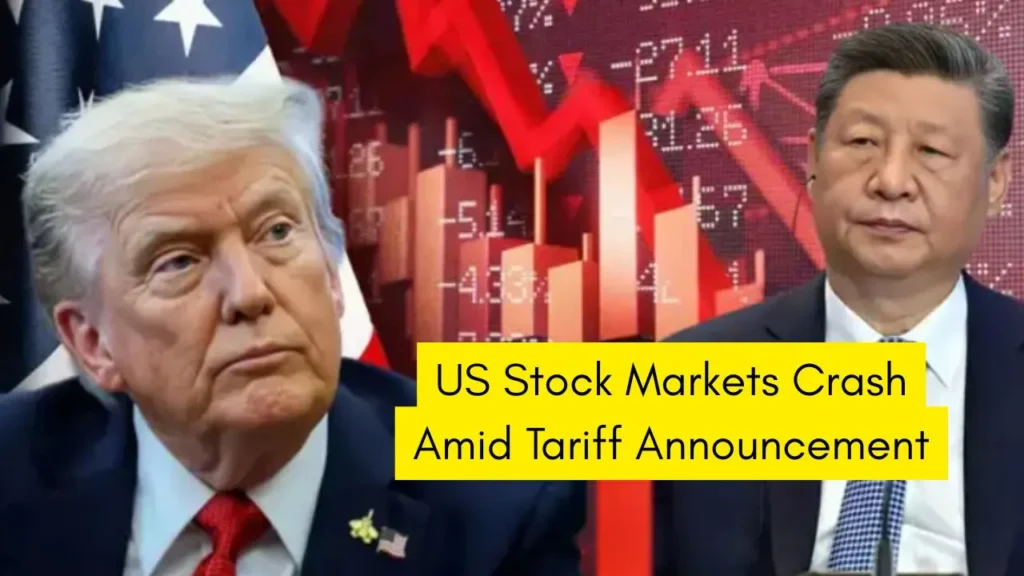US Stock Markets Crash Amid Tariff Announcement: The US stock market tumbled after President Trump announced a 100% tariff on Chinese goods. China’s yuan recovered on stronger midpoint guidance, easing trade tensions. Chinese yuan edges higher and recovers losses as the People’s Bank of China stabilizes midpoint rate. US stock markets crash after Trump announces 100% tariff on Chinese goods.
After US President Donald Trump announced a massive 100% tariff hike on Chinese imports coupled with new export controls by November 1, US stock markets plunged sharply on Friday. However, the Chinese yuan bounced back against the dollar following a strong midpoint rate set by China’s central bank, signaling efforts to stabilize the currency and soothe trade worries.
US Stock Markets Crash Amid Tariff Announcement
The announcement of a “massive increase” in tariffs by President Trump shocked investors, ending months of market calm:
- The Dow Jones Industrial Average fell by 1.05% to 45,873.
- S&P 500 dropped by 0.8% while Nasdaq slid nearly 2%, lagging among major indices.
These declines were triggered by fears of a deepening trade war after China imposed export controls on rare earth minerals crucial for tech and defense. Coupled with fresh port fees on US vessels and an antitrust probe against Qualcomm, the US markets reacted with swift sell-offs.
$2000 Stimulus Check 2025 in October: Eligibility, Payment Date, & IRS Refund
SSA $4983 Stimulus Direct Deposit October 2025 – Check Eligibility & Payout Dates
Chinese Yuan Recovers on Central Bank Guidance
The Chinese yuan weakened on Friday but strengthened on Monday after the People’s Bank of China set an official midpoint rate of 7.1007 per US dollar, its strongest since November 2024. This rate was firmer than market expectations, helping the yuan recover some losses:
- Onshore yuan traded at 7.1295 versus previous close of 7.1360.
- Offshore yuan rose about 0.15% to 7.135 per dollar in Asian markets.
Analysts see this as China’s effort to stabilize the currency amid trade friction and reassure investors about market stability.
Investor Response and Market Sentiment
Chinese stock investors reacted to the latest trade escalation by profit-taking and partial sell-offs, especially as markets hovered near decade highs. However, the recovery in the yuan and hints of diplomatic talks suggest the volatility might be temporary. Experts expect China and the US to continue negotiations, realizing that a large-scale trade conflict could have severe consequences for both economies.
FAQs
Q1. What caused the recent crash in US stock markets?
President Trump’s announcement of a 100% tariff increase on Chinese goods coupled with export controls triggered the sharp decline.
Q2. How did China respond to the trade tensions?
China imposed stricter export controls on rare earth minerals and set a stronger yuan midpoint to stabilize their currency.
Q3. What is the significance of rare earth minerals?
They are essential for tech, defense, electric vehicles, and clean energy industries worldwide.
Q4. Could this issue affect global markets?
Yes, due to disrupted supply chains and increased costs, global markets are experiencing volatility.
Q5. Is a diplomatic resolution expected?
Experts believe both sides understand the need to negotiate given economic interdependence, with possible meetings planned soon.

